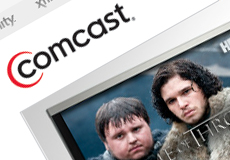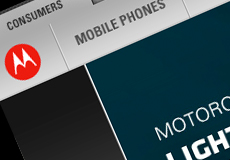By
emeadowsMarch 21, 2013
The Walt Disney Company reportedly has an app in the works that will stream ABC programming live to the smartphones and tablets of cable and satellite subscribers. For example, subscribers could watch “Good Morning America” live via phones while in line for their coffee or watch “Nashville” on their tablets will riding a bus home from work. The app could be available as soon as this year. Continue reading Disney Plans App for Live Streaming ABC to Mobile Devices
By
emeadowsMarch 20, 2013
Verizon Communications wants to switch up the way things work in the pay TV industry. Presently, the provider pays fees in order to carry various TV channels, but the company is proposing to tie those fees directly to how many viewers actually watch the channels. Verizon, whose FiOS TV is the sixth-largest pay TV provider in the nation, has begun talks with several smaller media companies about the prospect. Continue reading Verizon Proposes to Pay for Channels Based on Audience
By
emeadowsMarch 18, 2013
Redbox Instant by Verizon officially launched last week, opening to the public after a three-month-long closed beta test that drummed up interest from thousands of consumers, according to Redbox Instant CEO Shawn Strickland. He said the beta test period was a great learning opportunity for the company and the service, which offers subscribers access to 4,600 subscription titles and four DVD rentals for $8 a month. Continue reading Redbox Instant By Verizon Offers DVDs and Streaming
By
emeadowsMarch 18, 2013
Comedian Ricky Gervais has negotiated a deal to create new original content for his own channel on YouTube. The deal is a co-production of Derek Productions and Channel Flip, which currently runs approximately 140 YouTube channels. Gervais has expressed excitement about creating the new content and plans to resurrect popular character David Brent form the BBC mockumentary “The Office.” Continue reading Ricky Gervais Produces New Content for YouTube Channel
By
emeadowsFebruary 22, 2013
According to journalist Michael Wolff, cable is on a fast track to oblivion with an unsustainable business model. Currently, cable operators pay media companies to carry their cable channels, then pass the costs onto customers in the form of large bundled cable bills. After that, cable channels get to sell advertising. But as viewing habits change and new options become available, consumers are increasingly abandoning the traditional model. Continue reading TV Viewing Trends: Is Cable On the Fast Track to Oblivion?
By
emeadowsFebruary 22, 2013
According to a survey conducted by financial services firm Cowen & Co., about 23 percent of Netflix subscribers say they have canceled their premium TV service after opting to pay for broadband access to stream TV over the Internet — signifying a direct tie to cord-cutting. Among the 1,200 respondents, 46 percent said they have access to Netflix, while 28 percent are paying for the SVOD service. Continue reading Numbers Are In: Survey Says Netflix Leads to Cord-Cutting
By
Rob ScottFebruary 19, 2013
Intel confirmed rumors that it was pursuing Internet TV when VP Eric Huggers announced last week that the company had been negotiating with content companies and would launch a set-top box and new platform by the end of the year. While skepticism has resulted from lack of concrete details, the prospect of a chipmaker competing with top cable giants, and the industry’s history of failed attempts — Intel could still become the company to finally crack Internet TV. Continue reading Will Intel Be the One that Finally Delivers Internet TV?
By
emeadowsJanuary 30, 2013
HBO’s new chief executive Richard Plepler alluded to the fact that a standalone HBO broadband option could potentially exist somewhere down the road. “We recognize that there’s a piece of the audience out there that, if they could get HBO without going through a pay package, we would get it,” he noted, adding that he is hesitant to alienate HBO’s distributors by taking the channel directly to consumers online right now. Continue reading HBO Chief Exec Discusses Possibility of Broadband-Only Play
By
emeadowsJanuary 30, 2013
Tivli understands that young adults today are not watching TV in the traditional manner, but instead they are taking in programming via streaming subscriptions and other online alternatives. The startup is an “attempt to adapt to the ways young people increasingly want to watch TV — through a computer or tablet or video game console — while keeping the existing cable model intact,” reports The New York Times. Continue reading Streaming TV Arrives on Campus, Could Prevent Cord-Cutting
By
ETCentricJanuary 24, 2013
According to a new study from research firm GfK Media, consumers are streaming online video more than ever before, but only a reported 17 percent of pay TV subscribers have watched cable programming online using TV Everywhere services. The study represents the “latest bad news” for the TV Everywhere initiative, reports the Wall Street Journal. Continue reading New Research Indicates TV Everywhere is Not Yet Everywhere



